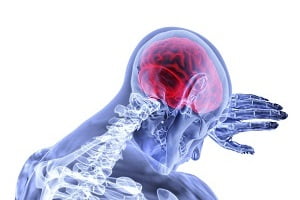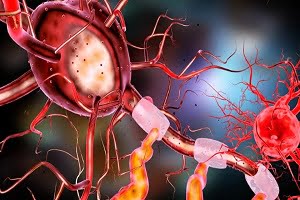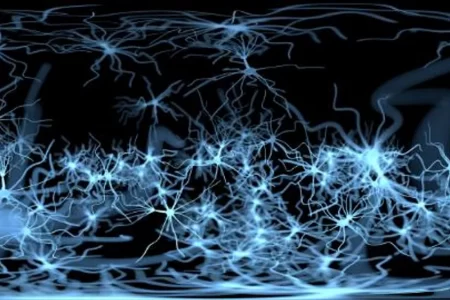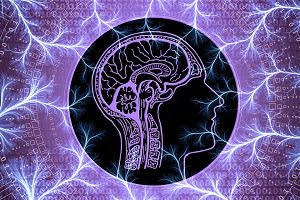Complications of Peripheral Neuropathy
- Updated on: Nov 1, 2023
- 3 min Read
- Published on Sep 4, 2022

Nerve damage in the peripheral nervous system is known as peripheral neuropathy. It causes symptoms like numbness, pain, burning sensation, erectile dysfunction, and muscle weakness. It can also lead to life-altering or disfiguring complications; therefore, early detection of the disease and treatment of underlying conditions is highly prioritized. The peripheral nervous system has three types of nerves, i.e., motor nerves, autonomic nerves, and sensory nerves. Symptoms depend on the kind of nerve which is damaged or affected. Damage to sensory nerves affects sensation; the patient also loses the sense of balance. When autonomic nerves get hurt, all the bodily functions like blood pressure, breathing rate, digestion of food is disturbed. Damage to motor nerves affects the reflex actions and movement of hands and legs.
When the condition of neuropathy worsens, a lot of complications arises; some of them are mentioned below:
Gangrene and Amputations
Due to neuropathy, the sensation of pain is lost, and due to this reason, some wound get unnoticed. These wounds are open and can get infected. Sometimes the infection becomes so worse that it reaches the bones. Gangrene is a life-threatening issue the death of wound tissues causes it. If gangrene is noticed in the early stages, then treatment can be done by antibiotics and surgery, and sometimes amputations can also be required. Amputation is the removal of limbs with surgery due to accidents or other medical illnesses. It is done to prevent malignancy and gangrene. The best treatment of gangrene is to prevent the wound from getting worse. Patients with diabetes should take extra care of their feet and undergo regular checkups by a podiatrist.
Digestive Issues Due to Autonomic Nerve Damage
Diabetic neuropathy can cause a condition known as gastroparesis. This is the condition in which the digestion of food takes longer than usual, and this can cause heartburn, feeling of fullness, the vomit of undigested food, abdominal bloating, lack of appetite, weight loss, etc. Managing of blood sugar level is the best treatment for this condition, besides regular intake of insulin can also be recommended.
Heart and Blood Circulation Complications
People with diabetic polyneuropathy face severe issues in heart and blood circulation. Cardiovascular autonomic neuropathy occurs when the autonomic nerves get damaged, and it gets challenging to manage heartbeat and blood pressure. Cardiovascular autonomic neuropathy can cause low blood pressure, which usually makes the patient feel dizzy. They often faint; it also affects the ability to exercise. People get tired after a brief period. To get over this complication, treatment of low blood pressure is required. Symptoms of low blood pressure can be controlled by:
- Drinking lots of fluid to maintain blood pressure and to increase the volume of blood
- Compression stockings are also suggested; they prevent blood from falling back into the legs.
- Patients should take care while sitting and standing; this process should be slower than usual.
- The bed should be raised a little higher from the head side.
One of the severe issues with cardiovascular autonomic neuropathy is the development of arrhythmia; it is a condition where the heart develops an abnormal beating pattern. Arrhythmia can also cause cardiac arrest, and to avoid this, few medications like beta-blockers and flecainide are prescribed.
Deformity of Lower Extremities
Charcot neuropathic osteoarthropathy is one of the complications which can cause a deformity in bones and joints. It is caused due to damaged motor nerves; bones lose their ability to fold because of the disrupted nerve signal. This lack of coordination can cause micro-fractures that destroys the integrity of bones and cause deformity and dislocation. Neuropathic ankle fracture is the most common one, and the treatment requires surgery. With the help of a cast, the affected area is stabilized, and too much weight – bearing is avoided to reduce swelling.
Loss of Bladder Control
Diabetic patients face this complication the most; the bladder can become overactive, underactive, or inconsistent due to nerve damage. People who have HIV and AIDS, amyloid neuropathy, chronic inflammatory demyelinating polyneuropathy, and Guillain-Barré syndrome can also face this complication. Bladder relaxation medicines like tolterodine, oxybutynin, and propantheline are prescribed. Bladder nerve stimulators like anti-epileptic drugs and GABA supplements are also suggested.
Ulcers, Injuries, and Wounds
The foremost symptom of neuropathy is the loss of pain; pain is a protective mechanism. Even a minor blister caused by a shoe bite can become very dangerous due to loss of sensation and pain. Due to the lack of sensation, areas under high pressure can develop ulcers. Sometimes in the case of neuropathy, these ulcers and blisters get unnoticed and untreated. But due to high blood sugar levels, the blood vessels get damaged, and blood flow to the wounded area gets restricted. Due to the scarcity of blood to the injured area, fewer fighting cells can reach there. Thus wound may take a longer time to be healed, and in the worse condition, it can transform into gangrene.












